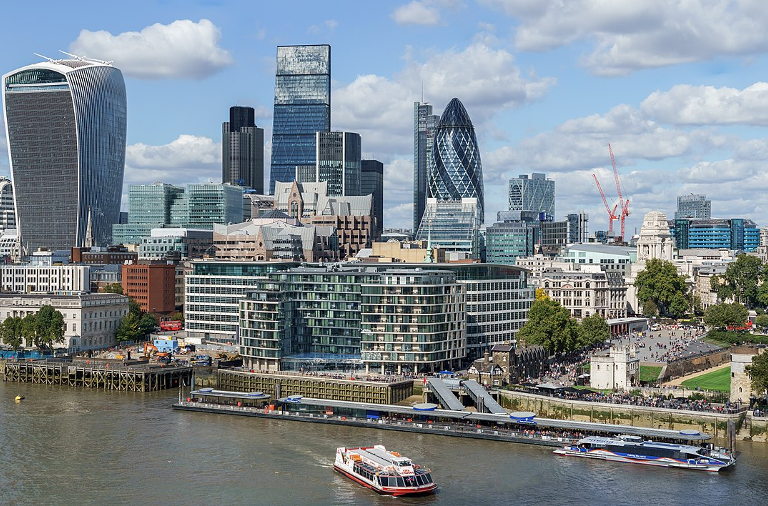Meaningful change on inequality would require real powers for local authorities. Anything else is just noise.
Amid all the squabbling about the distribution of ‘levelling up’ funds today, let’s remember the context.
Britain has the worst regional inequality in Europe, with some of the starkest divides between its richest and poorest areas of any large country in the West. Inner-west London, the richest region, has a per capita GDP of nearly £190,000 – about ten times that of the poorest regions.
The UK also has one of the most centralised systems of local government. The average French commune has less than 2,000 people. In Spain, the equivalent figure is 5,700. In Germany, it’s 7,300, Canada, 10,300, Sweden, 36,000. In England, it’s 204,000.
It seems improbable that these two facts coincide by chance. It is far more likely that the vast centralisation of power into Westminster is to blame for the deep impoverishment of much of the UK.
Of course, the UK’s poverty isn’t just structured by region: Grenfell Tower rose up in the heart of inner-west London. Deep poverty exists alongside, often in direct relationship with, exuberant wealth. Every fancy office needs a cleaner. Soaring asset prices push the propertyless into homelessness. Likewise, poorer regions have their upper classes, rising bourgeoisie and flashy golf clubs. But poverty is also clustered geographically, endemic in Teesside or west Wales or west Cornwall.
Along with the extreme centralisation of local government in England is the fact that it has less power and less permanence than most nations. On one hand, the capacity to make decisions over substantial areas of our lives has again and again been sucked up into the centre. On the other, it has been privatised out to faceless consultancy firms.
At times over the past century, when it has suited the central state, layers of regional government have been built on top of England’s local authorities: the metropolitan mayoralties and elected police and crime commissioners established by the Tories in the past decade being the latest examples. But these tiers aren’t embedded into our political life, they live and die at Westminster’s whim. When Thatcher didn’t like what Ken Livingstone and the Greater London Council were up to in the 1980s, she abolished it. If Andy Burnham posed a serious threat to Westminster’s power, he would be shuffled off in another round of reforms.
This week, Rishi Sunak’s government proved that even the supposedly more permanent parliaments of Scotland, Wales and Northern Ireland aren’t immune from interference from the boss, should Westminster see fit.
And across Britain, local government is a lie. Councils are forced to operate on scales so large that no one would consider them ‘local’ in any meaningful sense. They don’t have anything like the powers you would expect of an organisation described as ‘government’, often simply distributing Westminster funds along lines set out by Westminster policy.
When politicians talk about solving this disparity of power, they often use a word that, in fact, neatly summarises the problem: ‘devolution’. Because devolving power doesn’t mean giving it up, but delegating it.
The result of all of this is that local government in Britain is a bit of a shambles. Councillors have few powers and are usually paid a pittance, forcing them to do the job part-time or in retirement, hardly a recipe for serious local wealth-building.
And so it’s no surprise that most people don’t bother engaging with them. Turnout for local elections has been floundering at around 30% for years, and parties often campaign on national issues rather than local manifestos full of bright ideas.
Of course, if you are a hardline neoliberal, you might think all of this is irrelevant. If you think the government shouldn’t interfere in the economy, then it’s presumably a good thing that British local authorities largely don’t have much power to do so.
But if that’s your position, how do you account for the fact that wealth is spread much more successfully in countries where local and regional governments can establish regional development banks and industrial strategies, or where municipalities own major industries, such as water and transport?
The problem for Westminster is that its centralised nature isn’t a bug it can easily eradicate with a few tweaks or a ‘levelling up’ fund. Change would require abolishing the sovereignty of the Crown as well as Parliament and codifying regional and local power in a constitution, overseen by some kind of legal system.
This would challenge the very core of how Britain is run. The forces against doing so are significant. The City of London does very well out of the current set-up. One centralised Parliament is much easier for the likes of Rupert Murdoch to influence than a plethora of local authorities at a scale small enough for people to actually meet up and discuss their needs in person.
And so it’s easier for central government to dribble some crumbs from its table, and let local areas fight over which of them is more deserving.
Teaser photo credit: The City of London, one of the largest financial centres in the world. By © User:Colin and Kim Hansen / Wikimedia Commons, CC BY-SA 4.0, https://commons.wikimedia.org/w/index.php?curid=48935921





